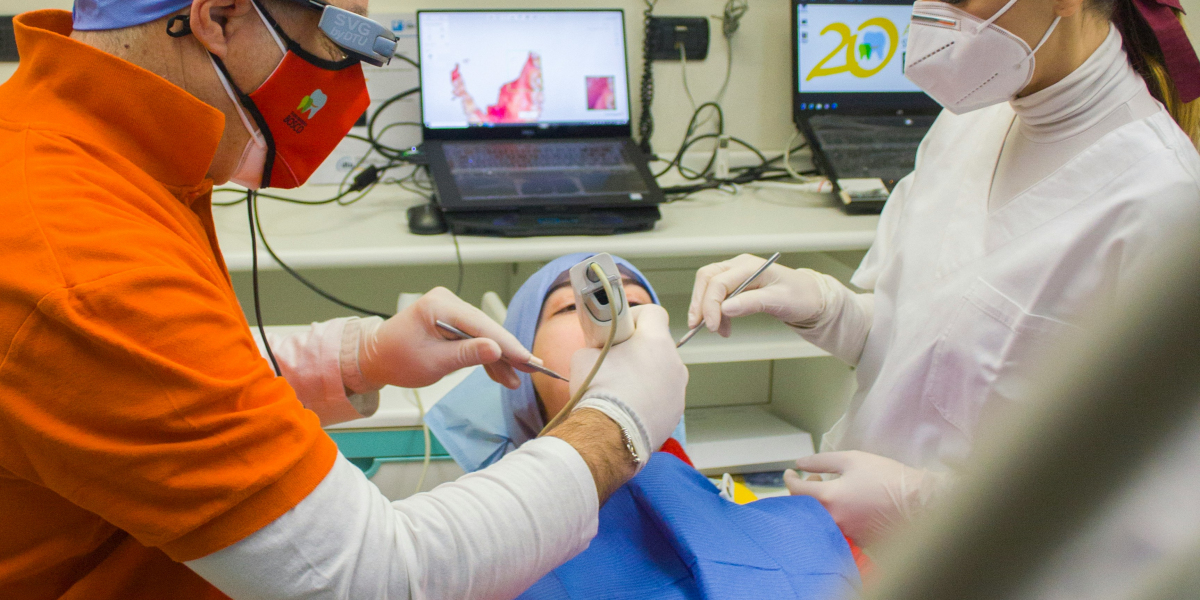What is Root Canal Treatment?
Root canal treatment, also known as endodontic therapy, is designed to treat the inner part of the tooth, known as the pulp. The pulp consists of nerves, blood vessels, and connective tissue, and when it becomes infected or damaged due to deep decay or trauma, a root canal procedure is required to save the tooth.
Why is Root Canal Treatment Necessary?
- Severe Tooth Pain: Persistent pain when chewing or biting, or spontaneous pain that wakes you up at night, are key indicators of an infected pulp.
- Infection or Abscess: Bacteria can spread from the pulp to the surrounding bone, leading to a painful abscess.
- Prevent Tooth Extraction: Root canal therapy can save your natural tooth, which is always preferable to extraction and replacement.
How Does a Root Canal Work?
The root canal procedure involves several steps, typically completed in one or two dental visits:
- Diagnosis and X-rays: Your dentist will examine the tooth and take X-rays to assess the extent of the damage or infection.
- Local Anesthesia: The dentist will numb the affected area to ensure you're comfortable throughout the procedure.
- Removing Infected Tissue: An opening is made in the tooth to access the pulp chamber and root canals, where the infected tissue is removed.
- Cleaning and Shaping: The dentist cleans the canals thoroughly and shapes them to prepare for filling.
- Filling the Canals: Once cleaned, the canals are filled with a biocompatible material called gutta-percha, which seals the space and prevents future infection.
- Restoration: A filling or crown is placed on the tooth to restore its structure and function, ensuring it can withstand chewing forces.
Benefits of Root Canal in Islington
- Pain Relief: Root canal treatment eliminates the source of pain and infection, allowing you to eat, speak, and live comfortably.
- Preservation of Natural Tooth: Your natural tooth remains in place, maintaining your smile and avoiding the complications of missing teeth.
- Long-Lasting Results: With proper care, a root canal-treated tooth can last a lifetime, offering a cost-effective solution compared to extractions and implants.
Myths and Misconceptions About Root Canal Treatment
Many patients have misconceptions about root canal treatment, leading to unnecessary fear or hesitation. Here are some common myths:
- "Root canals are painful": Modern dental techniques and anesthesia ensure that the procedure is no more painful than a routine filling.
- "It’s better to extract the tooth": Preserving your natural tooth is always the best option. Extraction can lead to bone loss and the need for more invasive procedures, such as dental implants.
- "Root canals don’t last long": With proper care, root canal-treated teeth can last a lifetime, just like healthy teeth.
The Importance of Aftercare
After a root canal, your tooth may feel sensitive for a few days, but this discomfort is temporary and can be managed with over-the-counter pain relief. Following your dentist’s aftercare instructions is crucial to ensure successful healing.
- Maintain Oral Hygiene: Brushing twice daily and flossing regularly will help prevent further infection.
- Avoid Hard Foods: For a few days, avoid chewing hard foods to protect the treated tooth while it heals.
- Regular Dental Visits: Routine check-ups with your Islington dentist will help monitor your oral health and ensure your root canal-treated tooth remains in good condition.
Dental Implants in Islington: A Solution for Missing Teeth
While root canal treatment is designed to save your natural tooth, in some cases, a tooth may be too damaged or infected to save. When this happens, dental implants are an excellent solution for replacing missing teeth and restoring your smile.
What are Dental Implants?
Dental implants are artificial tooth roots made of biocompatible materials like titanium. They are surgically placed into the jawbone, where they act as anchors for replacement teeth, such as crowns, bridges, or dentures.
Why Choose Dental Implants in Islington?
- Natural Look and Feel: Implants are designed to look and function like your natural teeth, blending seamlessly with your smile.
- Durability: Implants are a long-lasting solution that can last for decades with proper care.
- Improved Functionality: Implants provide stability and strength, allowing you to eat, speak, and chew with confidence.
- Bone Preservation: Unlike dentures or bridges, implants stimulate the jawbone and prevent bone loss, preserving your facial structure.
The Dental Implant Process
The process of getting dental implants typically involves several stages:
- Consultation and Planning: Your dentist will assess your oral health, take X-rays, and determine whether you have enough bone to support an implant.
- Surgical Placement: The implant is surgically placed into the jawbone. Over the next few months, the bone will integrate with the implant in a process called osseointegration.
- Abutment and Crown Placement: Once the implant has healed, an abutment is placed on top of the implant to connect it to the crown or replacement tooth.
- Restoration: A custom-made crown is attached to the abutment, completing your new smile.
Benefits of Dental Implants
- Permanent Solution: Implants are designed to be a permanent replacement for missing teeth, offering unmatched durability.
- Enhanced Confidence: Many patients report feeling more confident in their appearance after getting dental implants, as they no longer worry about gaps in their smile.
- Improved Oral Health: Dental implants don't require reducing or damaging adjacent teeth, making them a more conservative option compared to bridges.
Conclusion
Root canal treatment and dental implants offer two different but highly effective solutions for maintaining or restoring your smile. In Islington, you'll find expert dentists ready to guide you through both procedures, ensuring optimal oral health and a beautiful smile. Whether you're facing a painful tooth infection or considering replacing a missing tooth, these treatments provide long-lasting, functional results.









